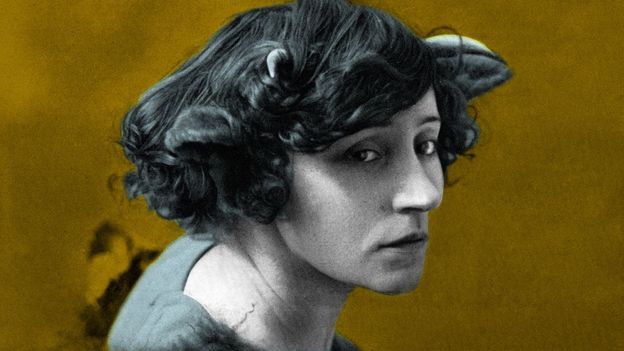
However, with Willy still retaining the royalties from the Claudine books, Colette was penniless, and to earn money she became a music hall performer. This appealed to her sense of performance and enabled her to play with gender roles: one minute dressed in drag as a besuited man, the next posing with a bare breast in the bodice-ripping pantomime The Flesh. Her experience in music hall inspired her 1910 novel The Vagabond, the highly autobiographical story of performer Renée Néré and a lover she calls “the Big Noodle”, which asks modern questions about the separation of love and sex, and how society seeks to control both through the institution of marriage. (An institution about which, of course, Colette and therefore Renée had great scepticism.) It was The Vagabond that catapulted Colette to literary acclaim for the first time, and the book won three votes for the prestigious Prix Goncourt.
Writing ‘immoral’ books
Colette’s time in music hall might have galvanised her interest in putting herself centre-stage in her fiction. One of her finest examples of this is the late novel Chance Acquaintances (1940), in which Colette the narrator visits a health resort where wealthy women (with fashionably bobbed hair) undergo dubious cures: “nasal douches, steam rooms, flushing the kidneys”. There she meets a husband and wife, the Haumes. Mme Haume is unwell, while M Haume has the appearance of “someone with very few thoughts in his head”. Colette discovers, however, that M Haume is having an affair and that his lover, back in Paris, has gone silent on him. Naturally, this is Colette’s ideal territory, and she agrees to visit his lover in Paris to find out the true story. The plot shows Colette’s appetite for mischief, as well as her enduring interest in the vagaries of the human heart, while M Haume finds that “when intrigue is called into play, a woman never forgets that feminine instinct is the older in guile.”
After Willy, Colette’s second husband, Henry de Jouvenel, could only be an improvement, and as editor of leading newspaper Le Matin, he was also able to publish his wife’s work. But even this came unstuck, as he was forced to abandon the serialised publication of a new book, Ripening Seed (1923), due to the shock it caused readers, and he asked her why she could not write novels that were not immoral.